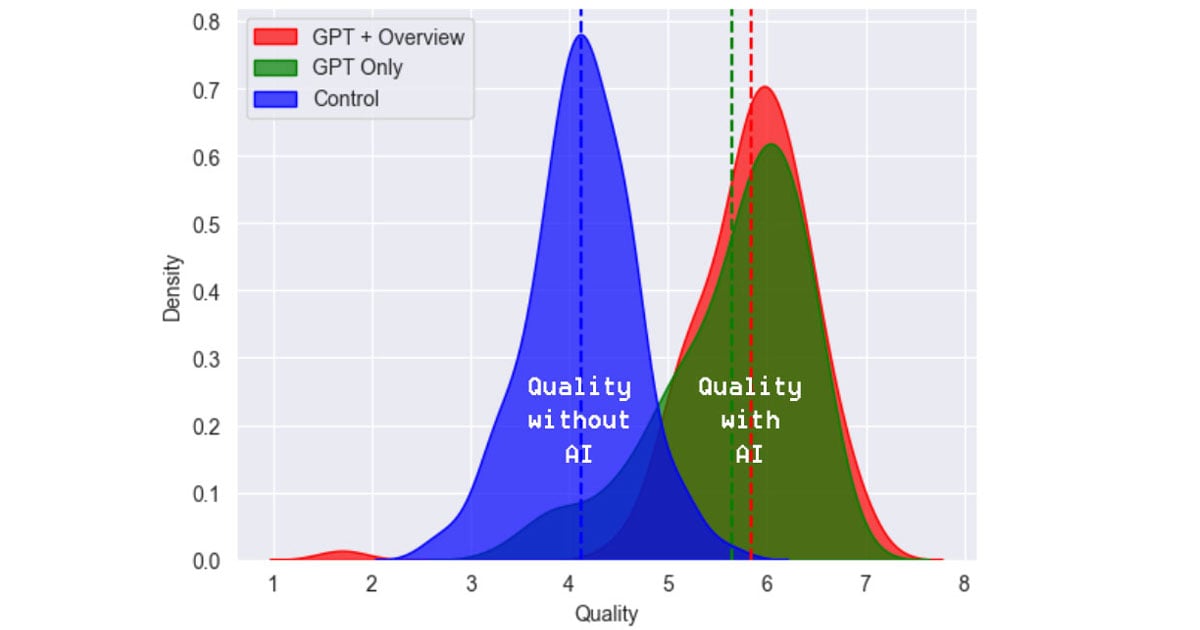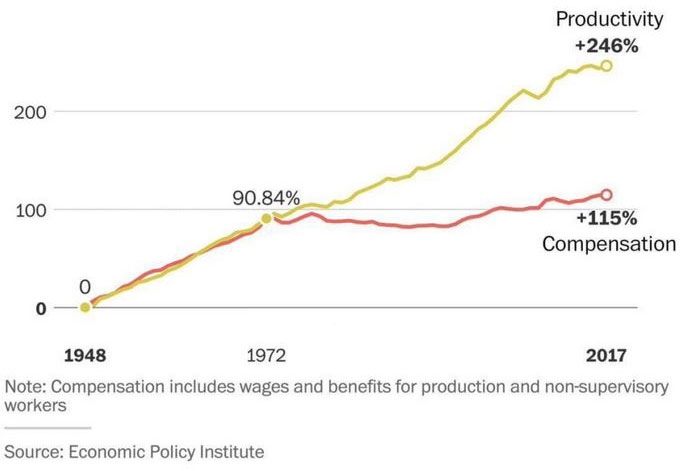AI is shown to significantly increase productivity among top-tier consultants. This performance boost holds the potential to reshape economic power structures—if we're willing to take the reins.
The productivity explosion initiated by AI continues to take shape: A new study spearheaded by researchers from Harvard, Wharton, and MIT has shed fresh light on the impact of generative AI on the productivity of white-collar workers. Utilizing GPT-4, the study observed consultants from the Boston Consulting Group in a series of tasks, discovering a 40% increase in performance across the board. Remarkably, this wasn't a minor uptick among newbies—we are talking about top-tier consultants, often with elite MBA credentials, doing tasks highly related to their everyday work. Harvard's Fabrizio Dell’Acqua, the lead author, expressed that the findings were genuinely impressive, altering perceptions of how businesses could utilize generative AI for optimal efficiency.

Performance with and without the help of AI. Image credit: Dell'Acqua et al.
The transformative potential of generative AI in enhancing white-collar productivity is impossible to ignore. This changes everything. Think about the industrial revolution. Mechanization replaced and augmented manual labor, drastically increasing output and changing society forever. Now, we are at the brink of another explosion in productivity, and its transformative potential is mind-blowing, to say the least.
Back in the days of the industrial revolution, the biggest winners were of course those who owned the factories, not the ones clocking in every day. In the same way, as AI makes us more efficient and reshapes our work, we have to ask who gets the bigger slice of this high-tech pie. Is it the companies that put AI to work, or the employees who figure out how to work alongside it?
Being More Productive Doesn’t Make You Wealthy
Over the last few decades, there's been a startling disconnect between productivity and compensation. As illustrated by the graph below, from 1971 to 2017, productivity rose significantly, increasing by a factor of 2.5. Yet, during the same period, workers' compensation lagged behind, growing only by a modest factor of 1.15.

Growth in productivity and hourly compensation since 1948. Image credit: wtfhappenedin1971.com
So, even though we're getting more done in less time, it's not like everyone's enjoying a better standard of living. In fact, for a lot of folks, life's gotten tougher. Inflation, recession, and rising unemployment indicate that there might be even harder times ahead. Trusting in AI to suddenly make everyone's life cushier is wishful thinking at best. Odds are, at least in the short term, it will widen the gap between how much we produce and how much we earn. Yet, it's worth considering that AI, as an unexpected wildcard, could also offer new paths to prosperity.
AI Could Be Your Wildcard
The rise of AI might just be the wildcard we didn't know we needed. Sure, it's easy to be cynical and assume that, as with past technological leaps, the rich will get richer while the rest of us hustle harder for less. But let's consider another scenario for a second. Unlike the days when you needed massive capital to buy a steam engine or build a factory, today's tools for innovation are far more accessible. AI has democratized the act of creation to some extent.
Got an app idea that's been stewing in your brain for years? Unlike the past, you don't need to be a coding wizard to make it happen. AI can help you build at least a prototype, even if your coding skills are still a work in progress. It can also help you with marketing, graphic design, and business decisions. In a nutshell, it can give you skills that otherwise would take years to acquire.
Now, I get it—system requirements for machine learning models, API fees, or even the $20 a month for a ChatGPT subscription can be barriers. In some countries, that's around 10% of the monthly minimum wage. But even with these obstacles, we're talking about a playing field that's more open than ever before. In a way, thanks to AI, we all have an entire workforce at our disposal.
Reshuffling Economic Power
What does all this mean for economic inequality and power structures? Well, more players in the game could lead to a shake-up. While it's still crucial to be realistic about the immediate challenges, AI does offer a glimmer of hope. It's a chance to flatten hierarchies and distribute opportunities in ways we haven't seen before. To seize these new opportunities, everyone has to take the reins into their own hands. So, yes, we might be in for some surprises, and that alone should keep us invested in how this narrative unfolds.